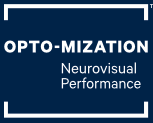Post-concussion syndrome (PCS) can affect up to 20%–30% of patients with mild closed head injury (mCHI), comprising incomplete recovery and debilitating persistence of post-concussional symptoms. Eye movements relate closely to the functional integrity of the injured brain and eye movement function is impaired post-acutely in mCHI. Here, we examined whether PCS patients continue to show disparities in eye movement function at 3–5 months following mCHI compared with patients with good recovery. We hypothesized that eye movements might provide sensitive and objective functional markers of ongoing cerebral impairment in PCS. We compared 36 PCS participants (adapted World Health Organization guidelines) and 36 indi- vidually matched controls (i.e. mCHI patients of similar injury severity but good recovery) on reflexive, anti- and self-paced saccades, memory-guided sequences and smooth pursuit. All completed neuropsychological testing and health status ques- tionnaires. Mean time post-injury was 140 days in the PCS group and 163 days in the control group. The PCS group performed worse on anti-saccades, self-paced saccades, memory-guided sequences and smooth pursuit, suggesting problems in response inhibition, short-term spatial memory, motor-sequence programming, visuospatial processing and visual attention. This poorer oculomotor performance included several measures beyond conscious control, indicating that subcortical functionality in the PCS group was poorer than expected after mCHI. The PCS group had poorer neuropsychological function (memory, complex attention and executive function). Analysis of covariance showed oculomotor differences to be practically unaffected by group disparities in depression and estimated intellectual ability. Compared with neuropsychological tests, eye movements were more likely to be markedly impaired in PCS cases with high symptom load. Poorer eye movement function, and particularly poorer subcortical oculomotor function, correlated more with post-concussive symptom load and problems on activities of daily living whilst poorer neuropsychological function exhibited slightly better correlations with measures of mental health. Our findings that eye movement function in PCS does not follow the normal recovery path of eye movements after mCHI are indicative of ongoing cerebral impairment. Whilst oculomotor and neuropsychological tests partially overlapped in identifying impairment, eye move- ments showed additional dysfunction in motor/visuospatial areas, response inhibition, visual attention and subcortical function.
Poorer subconscious oculomotor function in the PCS group supports the notion that PCS is not merely a psychological entity, but also has a biological substrate. Measurement of oculomotor function may be of value in PCS cases with a high symptom load but an otherwise unremarkable assessment profile. Routine oculomotor testing should be feasible in centres with existing access to this technology.
Read more on the PDF
